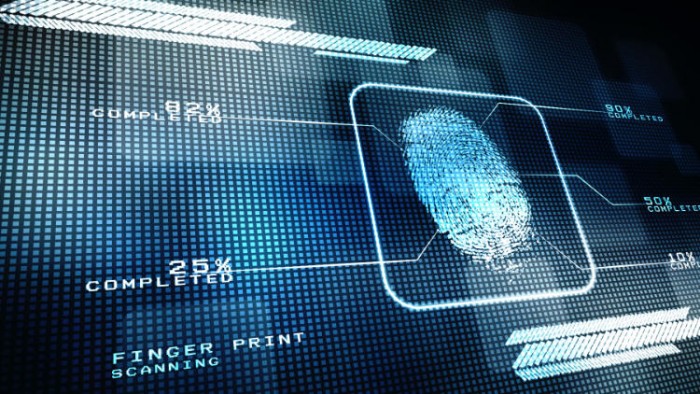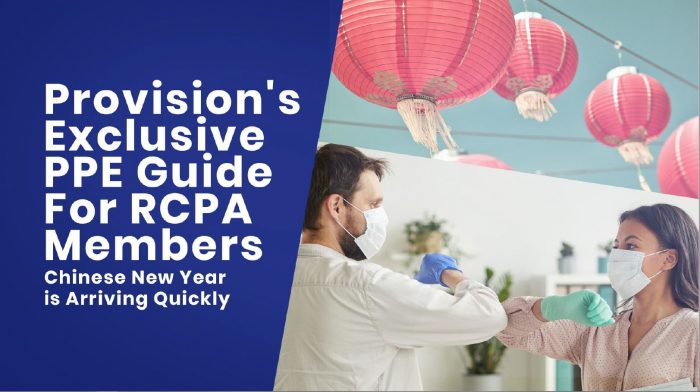DDAP Announces Federal Resources and Funding Opportunities
Workshop Series
- Reminder: The Office of National Drug Control Policy has launched a new workshop series for rural faith leaders. It is entitled Empowering Faith Leaders to Help Persons with Substance Use Disorder. This is a series of four workshops that will allow rural faith leaders to share valuable information and resources. The first workshop, Substance Use Disorder and the Pandemic in Rural Communities, will take place on December 8, 2020 from 1:00 pm – 2:30 pm Eastern Standard Time. If you would like to attend, RSVP to Betty-Ann Bryce. Please include your name, title, organization, and contact information.
Funding
- The Department of Health and Human Services – Substance Abuse and Mental Health Services Administration (SAMHSA), Center for Mental Health Services (CMHS) is accepting applications for the fiscal year (FY) 2021 Statewide Family Network grant program (SFN). The purpose of this program is to more effectively respond to the needs of children, youth, and young adults with serious emotional disturbances (SED) and their families by providing information, referrals, and support; it will also create a mechanism for families to participate in state and local mental health services planning and policy development. The application due date is January 4, 2021.
- The Department of Health and Human Services – Substance Abuse and Mental Health Services Administration (SAMHSA), Center for Mental Health Services (CMHS) is accepting applications for the fiscal year (FY) 2021 Statewide Consumer Network grant program (SCN). The purpose of this program is to improve efforts to address the needs of adults with serious mental illness (SMI) by developing and/or expanding peer support services, peer leadership, and peer engagement strategies statewide. The application due date is January 4, 2021.
- The Department of Health and Human Services – Health Resources and Services Administration (HRSA) Behavioral Health Workforce Education and Training (BHWET) Program for Professionals aims to increase the supply of behavioral health professionals while also improving distribution of a quality behavioral health workforce, thereby increasing access to behavioral health services. A special focus is placed on the knowledge and understanding of children, adolescents, and transitional-aged youth at risk for behavioral health disorders. The closing date is January 21, 2021.
- The Department of Health and Human Services announces the opportunity to apply for funding under the National Telehealth Resource Center (NTRC) Program. The purpose of NTRCs is to support the delivery of telehealth technical assistance through Regional Telehealth Resource Centers (RTRCs). Two NTRCs may be funded. The closing date is January 21, 2021.
- The Department of Health and Human Services announces the opportunity to apply for funding under the Regional Telehealth Resource Center (RTRC) Program. RTRCs assist health care organizations, health care networks, and health care providers in the implementation of cost-effective telehealth programs to serve rural areas and populations. RTRCs also assist patients and families living in rural areas with telehealth technology so that they can obtain health services. This notice of funding opportunity (NOFO) will support 12 RTRCs that focus on statewide and regional telehealth activities. The closing date is January 21, 2021.
- The Department of Health and Human Services announces the opportunity to apply for funding under the Rapid Response Rural Data Analysis and Issue Specific Rural Research Studies Program. The purpose of this program is to assist rural communities with conducting rapid data analyses and short-term issue-specific rural research studies to understand the impact of current and proposed policies and regulations as well as provide information that will improve health care in rural America. The closing date is January 29, 2021.
FBI Fingerprinting Grace Period Ends December 31, 2020
Earlier this year, Governor Wolf signed Act 18 of 2020, which temporarily extended the time period for certain professions required by the Child Protective Services Law (CPSL) to obtain or renew an FBI Criminal History clearance. Act 18 was passed to create flexibility since the pandemic caused many fingerprinting locations across the state to close earlier this year. Most locations have since reopened.
Pennsylvanians are strongly encouraged to get fingerprinted and obtain their FBI Criminal History clearance as soon as possible in order to avoid potential delays due to an increase in the number of people needing to obtain this clearance. To obtain a list of fingerprinting locations that are open during the COVID-19 pandemic, please visit the IdentoGO Location Map. Anyone seeking fingerprinting services should call IDEMIA’s customer service line at 844-321-2101 to ensure that the location is still operating, schedule an appointment, and discuss necessary COVID-19 safety precautions.
If employers have a large number of employees who need new or renewed clearances, arrangements can be made to have fingerprinting occur at the workplace. Mobile fingerprinting services are available for an additional fee through IDEMIA for groups of 20 or more. Agencies in need of this service should contact IDEMIA to schedule.
For directions on obtaining fingerprints, please visit this webpage.
If you have any questions or thoughts, please contact RCPA Policy Director Jim Sharp.
Provision’s Exclusive PPE Guide for RCPA Members: Chinese New Year is Arriving Quickly
International Day of Persons with Disabilities is December 3
Employee Use of Personal Cell Phones for Electronic Visit Verification (EVV)
DHS Adopts Recommendation to Monitor Contractors Working Near Children
Request to IDD Providers to Participate in National Survey with Your DSPs
Providing Support During the COVID-19 Pandemic: Direct Support Professionals Survey
The National Alliance of Direct Support Professionals (NADSP), in partnership with the Institute on Community Integration (ICI) at the University of Minnesota, is conducting a survey on the impact of the COVID-19 pandemic on direct support professionals (DSPs). Your responses will help us identify the most effective ways to protect DSPs and the people you support.
If you provide direct support to people with disabilities, please take the survey. Your answers will be anonymous. National and state-specific results from the survey will be shared widely in March 2021.
A similar survey was conducted by ICI and NADSP in the spring of 2020; it was completed by more than 9,000 DSPs. Those results are available here. The new survey is for both DSPs who completed the earlier survey and those who did not.
The National Alliance for Direct Support Professionals is a national non-profit whose mission is to elevate the status of direct support professionals by improving practice standards; promoting system reform; and advancing their knowledge, skills, and values. Our vision is a world with a highly qualified and professional direct support workforce that partners with, supports, and empowers people with disabilities to lead a life of their choosing.
The Institute on Community Integration at the University of Minnesota is a designated University Center for Excellence in Developmental Disabilities; it is part of a national network of similar programs in major universities and teaching hospitals across the country. ICI’s collaborative research, training, and information-sharing ensure that people with disabilities are valued by, included in, and able to contribute to their communities of choice throughout their lifetime.
Department of Health Announces New App: COVID Alert PA
The Pennsylvania Department of Health, along with Apple and Google, has launched an exposure notification app called COVID Alert PA. It is available to download for free at the Apple App Store and Google Play Store.
The app is an effective tool, but the commonwealth needs your help getting it in the hands of Pennsylvanians. We need help getting the word out – and downloads up.
Can you help us? We have an extensive catalog of marketing materials, including posters, social media posts, press releases, and other customizable content. You can find downloadable marketing materials on the Community Resources webpage.
COVID Alert PA is a free mobile app that uses Bluetooth Low Energy (BLE) technology and the Exposure Notification System developed by Apple and Google. Features include:
- Interactive COVID-19 symptom checker;
- Opt-in for alerts concerning potential exposure to the virus;
- Updates on the latest public health data about COVID -19; and
- Language options available in English, Spanish, German, and traditional Chinese.
COVID Alert PA protects both privacy and personal information. The app does not use GPS, location services, or any movement or geographical information. It will never collect, transmit, or store personal information. It is completely anonymous.
Thank you in advance for helping to get the word out to your employees, customers, family, friends, and neighbors.
Thank you for your support!
OCYF Bulletin: New Waiver Submission Procedures

The Office of Children, Youth, and Families (OCYF) has released Bulletin 3130-20-04, 3140-20-03, 3150-20-01, 3170-20-01, 3350-20-03, 3490-20-07, 3680-20-03, 3700-20-03, 3800-20-05, entitled “Procedures to Request Waiver of Regulation(s).” This bulletin and the new waiver submission procedures outlined therein will be effective immediately upon release.
The purpose of this bulletin is to advise all public and private children and youth social service agencies and child residential and day treatment programs licensed by OCYF of our revised procedures for processing waiver requests relating to all regulations governing children and youth social service programs. This new waiver process streamlines and expedites the processing of waiver requests and offers flexibility when possible to meet the needs of families and individuals. Attached to this bulletin, you will also find the updated form for requesting a waiver of regulation(s).
Please be advised that any waivers submitted to OCYF for processing prior to the dissemination of this bulletin and form will continue to be processed. Any waiver request submitted as of December 2, 2020 must be submitted through the new procedure.
Questions regarding regulatory requirements or licensure for your agency should still be directed to your applicable OCYF Regional Office. Any other questions about this bulletin, procedure, or form may be directed here.
If you have questions or feedback, please contact RCPA Children’s Director Jim Sharp.

















